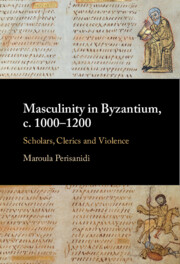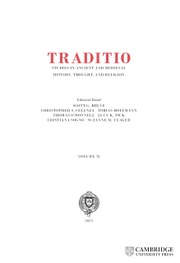Masculinity in Byzantium, c. 1000–1200
What does it mean to be a man? What makes one effeminate or manly? What renders a man 'Byzantine'? Drawing from theories of gender, posthumanism and disability, this book explores the role of learning, violence and animals in the construction of Byzantine masculinities. It foregrounds scholars and clerics, two groups who negotiated the hegemonic ideal of male violence in contrasting and unexpected ways. By flaunting their learning, scholars accumulated enough masculine capital to present more “feminine” emotional dispositions and to reject hunting and fighting without compromising their masculinity. Clerics often appear less peaceable. Some were deposed for fighting, while many others seem to have abandoned their roles to pursue warfare, demonstrating the fluidity of religious and gender identity. For both clerics and scholars, much of this gender-work depended on animals, whose entanglements with humans ranged from domination to mutual transformation.
- Employs theories from studies of gender, disability and posthumanism to provide new perspectives on Byzantine history
- Focuses on scholarly and clerical masculinities in order to question traditional associations of masculinity with physical strength and to better understand the gendering of emotions
- Brings Byzantium into dialogue with the medieval West by highlighting similarities and differences in the ways that learning, violence and religious status constructed gender
Product details
November 2024Adobe eBook Reader
9781009499804
0 pages
3 colour illus.
This ISBN is for an eBook version which is distributed on our behalf by a third party.
Table of Contents
- 1. Michael Psellos: writing like a man, 'throwing like a girl'
- 2. Ioannes Tzetzes: a scholar and his animals
- 3. Gregorios Antiochos: disabled bodies and desired becomings
- 4. Hunting Churchmen
- 5. Fighting the good fight.




.jpg)
